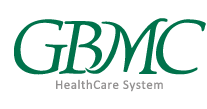A Clinical Trial Comparing the Combination of TC Plus Bevacizumab to TC Alone and to TAC for Women With Node-Positive or High-Risk Node-Negative, HER2-Negative Breast Cancer
| Status: | Active, not recruiting |
|---|---|
| Conditions: | Breast Cancer, Cancer |
| Therapuetic Areas: | Oncology |
| Healthy: | No |
| Age Range: | 18 - 70 |
| Updated: | 5/6/2017 |
| Start Date: | May 2009 |
| End Date: | January 2022 |
A Phase III Clinical Trial Comparing the Combination of TC Plus Bevacizumab to TC Alone and to TAC for Women With Node-Positive or High-Risk Node-Negative, HER2-Negative Breast Cancer
The main purpose of this study is to learn if adding bevacizumab to standard treatment with
chemotherapy (docetaxel, doxorubicin, and cyclophosphamide) for early stage HER2-negative
breast cancer will prevent breast cancer from returning. A second purpose of this study is
to learn if adding bevacizumab to treatment with chemotherapy will help women with
HER2-negative breast cancer live longer. The researchers also want to learn about the side
effects of the combination of drugs used in this study.
chemotherapy (docetaxel, doxorubicin, and cyclophosphamide) for early stage HER2-negative
breast cancer will prevent breast cancer from returning. A second purpose of this study is
to learn if adding bevacizumab to treatment with chemotherapy will help women with
HER2-negative breast cancer live longer. The researchers also want to learn about the side
effects of the combination of drugs used in this study.
The B-46-I/07132 study, a multicenter, open-label, randomized Phase III, adjuvant therapy
trial, will compare the value of adding bevacizumab to a non-anthracycline-based
chemotherapy regimen relative to the same chemotherapy without bevacizumab and relative to
an anthracycline-based chemotherapy regimen in women with resected node-positive or
high-risk node-negative, HER2-negative breast cancer. This trial will determine whether the
addition of bevacizumab to a regimen of docetaxel and cyclophosphamide (TCB) improves
invasive disease-free survival relative to docetaxel and cyclophosphamide alone (TC). A
secondary aim will be to determine whether the addition of bevacizumab to TC improves
invasive disease-free survival compared to a regimen of docetaxel, doxorubicin, and
cyclophosphamide (TAC). Other secondary aims include whether TCB improves disease-free
survival, overall survival, and recurrence-free interval relative to TC alone and to TAC.
The toxicities of the three regimens will also be compared.
Patients in the B-46-I/07132 study will be randomized to one of three treatment regimens:
Group 1 patients will receive 6 cycles of TAC administered every 21 days (docetaxel 75
mg/m2, doxorubicin 50 mg/m2, and cyclophosphamide 500 mg/m2); Group 2 patients will receive
6 cycles of TC administered every 21 days (docetaxel 75 mg/m2, cyclophosphamide 600 mg/m2);
and Group 3 patients will receive 6 cycles of TCB every 21 days with bevacizumab therapy
continuing every 21 days after completion of chemotherapy until 1 year following the first
dose (docetaxel 75 mg/m2, cyclophosphamide 600 mg/m2, and bevacizumab 15 mg/kg). Primary
prophylaxis with pegfilgrastim or filgrastim is required for Group 1 patients (optional for
patients in Groups 2 and 3). Patients will also receive adjuvant radiation therapy as
clinically indicated and endocrine therapy for hormone receptor-positive tumors.
Tumor samples will be submitted for correlative science studies to evaluate predictors of
study therapy benefit. Submission of a tumor sample is a study requirement for all patients.
trial, will compare the value of adding bevacizumab to a non-anthracycline-based
chemotherapy regimen relative to the same chemotherapy without bevacizumab and relative to
an anthracycline-based chemotherapy regimen in women with resected node-positive or
high-risk node-negative, HER2-negative breast cancer. This trial will determine whether the
addition of bevacizumab to a regimen of docetaxel and cyclophosphamide (TCB) improves
invasive disease-free survival relative to docetaxel and cyclophosphamide alone (TC). A
secondary aim will be to determine whether the addition of bevacizumab to TC improves
invasive disease-free survival compared to a regimen of docetaxel, doxorubicin, and
cyclophosphamide (TAC). Other secondary aims include whether TCB improves disease-free
survival, overall survival, and recurrence-free interval relative to TC alone and to TAC.
The toxicities of the three regimens will also be compared.
Patients in the B-46-I/07132 study will be randomized to one of three treatment regimens:
Group 1 patients will receive 6 cycles of TAC administered every 21 days (docetaxel 75
mg/m2, doxorubicin 50 mg/m2, and cyclophosphamide 500 mg/m2); Group 2 patients will receive
6 cycles of TC administered every 21 days (docetaxel 75 mg/m2, cyclophosphamide 600 mg/m2);
and Group 3 patients will receive 6 cycles of TCB every 21 days with bevacizumab therapy
continuing every 21 days after completion of chemotherapy until 1 year following the first
dose (docetaxel 75 mg/m2, cyclophosphamide 600 mg/m2, and bevacizumab 15 mg/kg). Primary
prophylaxis with pegfilgrastim or filgrastim is required for Group 1 patients (optional for
patients in Groups 2 and 3). Patients will also receive adjuvant radiation therapy as
clinically indicated and endocrine therapy for hormone receptor-positive tumors.
Tumor samples will be submitted for correlative science studies to evaluate predictors of
study therapy benefit. Submission of a tumor sample is a study requirement for all patients.
Inclusion Criteria:
- Patients must be female.
- The patient must be greater than or equal to 18 years of age and less than or equal
to 70 years of age.
- The patient must have an Eastern Cooperative Oncology Group (ECOG) performance status
of 0 or 1.
- The tumor must be unilateral invasive adenocarcinoma of the breast on histologic
examination.
- The breast cancer must be HER2-negative based on current American Society of Clinical
Oncology (ASCO)/College of American Pathologists (CAP) Guideline Recommendations for
Human Epidermal Growth Factor Receptor 2 Testing in Breast Cancer. If the result of
the in situ hybridization testing (FISH, chromagen in situ hybridization (CISH), or
other) is equivocal, the patient is eligible if there is no plan to administer
HER2-targeted therapy.
- All of the following staging criteria (according to the 6th edition of the American
Joint Committee on Cancer (AJCC) Cancer Staging Manual) must be met: By pathologic
evaluation, primary tumor must be pT1-3; By pathologic evaluation, ipsilateral nodes
must be pN0, pN1 (pN1mi, pN1a, pN1b, pN1c), pN2a, pN3a, or pN3b. If pN0, at least one
of the following criteria must be met: ER negative and PgR negative; or Pathologic
tumor size greater than 2.0 cm; or T1c (pathologic tumor size greater than 1.0 cm but
less than or equal to 2.0 cm) and ER positive (PgR status may be positive or
negative) and either Oncotype DX® Recurrence Score of greater than or equal to 25 or
grade 3 histology.
- Patients must have undergone either a total mastectomy or breast-conserving surgery
(lumpectomy).
- For patients who undergo lumpectomy, the margins of the resected specimen must be
histologically free of invasive tumor and DCIS as determined by the local
pathologist. If pathologic examination demonstrates tumor at the line of resection,
additional operative procedures must be performed to obtain clear margins. If tumor
is still present at the resected margin after re-excision(s), the patient must
undergo total mastectomy to be eligible. (Patients with margins positive for lobular
carcinoma in situ [LCIS] are eligible without additional resection.)
- For patients who undergo mastectomy, margins must be histologically free of invasive
tumor and DCIS.
- Patients must have completed one of the following procedures for evaluation of
pathologic nodal status: Sentinel lymphadenectomy alone if pathologic nodal staging
based on sentinel lymphadenectomy is pN0, pN1mi, or pN1b; Sentinel lymphadenectomy
followed by removal of additional non-sentinel lymph nodes if the sentinel node (SN)
is positive; or Axillary lymphadenectomy without SN isolation procedure.
- The interval between the last surgery for breast cancer (treatment or staging) and
randomization must be at least 28 days but no more than 84 days.
- Patients must have ER analysis performed on the primary tumor prior to randomization.
If ER analysis is negative, then PgR analysis must also be performed. (Either a core
biopsy or surgical resection specimen can be used for ER/PgR testing.)
- The most recent postoperative blood counts must meet the following criteria: Absolute
neutrophil count (ANC) must be greater than or equal to 1200/mm3; platelet count must
be greater than or equal to 100,000/mm3; and hemoglobin must be greater than or equal
to 10 g/dL.
- The following criteria for evidence of adequate hepatic function must be met based on
the results of the most recent postoperative tests: total bilirubin must be less than
or equal to upper limits of normal (ULN)for the lab unless the patient has a
bilirubin elevation less than ULN to 1.5 x ULN due to Gilbert's disease or similar
syndrome involving slow conjugation of bilirubin; and alkaline phosphatase must be
less than or equal to 2.5 x ULN for the lab; and AST must be less than or equal to
1.5 x ULN for the lab. Alkaline phosphatase and aspartate transaminase (AST) may not
both be greater than the ULN. For example, if the alkaline phosphatase is greater
than the ULN but less than or equal to 2.5 x ULN, then the AST must be less than or
equal to the ULN. If the AST is greater than the ULN but less than or equal to 1.5 x
ULN, then the alkaline phosphatase must be less than or equal to ULN.
- Patients with AST or alkaline phosphatase greater than ULN are eligible for inclusion
in the study if liver imaging (CT, MRI, PET-CT, or PET scan) does not demonstrate
metastatic disease and the requirements for adequate hepatic function are met.
- Patients with alkaline phosphatase that is greater than ULN but less than or equal to
2.5 x ULN are eligible for inclusion in the study if a bone scan, PET-CT, or PET scan
does not demonstrate metastatic disease.
- The most recent postoperative serum creatinine must be less than or equal to ULN for
the lab.
- A urine sample must be tested for proteinuria by the dipstick method. Eligibility
must be based on the most recent postoperative test result(s) performed within 6
weeks prior to randomization. Urine dipstick must indicate 0-1+ protein. If dipstick
reading is greater than or equal to 2+, a 24-hour urine specimen must be collected
and must demonstrate less than 1 gram of protein.
- Left ventricular ejection fraction (LVEF) assessment by 2-D echocardiogram or
multigated acquisition (MUGA) scan must be performed within 90 days prior to
randomization. The LVEF must be greater than or equal to 50% regardless of the
facility's lower limits of normal (LLN).
Exclusion Criteria:
- T4 tumors including inflammatory breast cancer.
- Definitive clinical or radiologic evidence of metastatic disease.
- Synchronous or metachronous contralateral invasive breast cancer. (Patients with
synchronous and/or metachronous contralateral DCIS are eligible.)
- Any history of ipsilateral invasive breast cancer or ipsilateral DCIS.
- History of non-breast malignancies within 5 years prior to randomization, except for
the following: carcinoma in situ of the cervix, colorectal carcinoma in situ,
melanoma in situ, and basal cell and squamous cell carcinomas of the skin.
- Previous therapy with anthracyclines, taxanes, or bevacizumab for any malignancy.
- Chemotherapy administered for the currently diagnosed breast cancer prior to
randomization.
- Continued therapy with any hormonal agent such as raloxifene or tamoxifen (or other
SERM) or an aromatase inhibitor. (Patients are eligible if these medications are
discontinued prior to randomization.)
- Any sex hormonal therapy, e.g., birth control pills, ovarian hormone replacement
therapy. Patients are eligible if these medications are discontinued prior to
randomization.
- Active hepatitis B or hepatitis C with abnormal liver function tests.
- Cardiac disease (history of and/or active disease) that would preclude the use of the
drugs included in the treatment regimens. This includes but is not confined to 1)
Active cardiac disease: angina pectoris that requires the use of anti-anginal
medication; ventricular arrhythmias except for benign premature ventricular
contractions; supraventricular and nodal arrhythmias requiring a pacemaker or not
controlled with medication; conduction abnormality requiring a pacemaker; valvular
disease with documented compromise in cardiac function; and symptomatic pericarditis,
2) History of cardiac disease: myocardial infarction documented by elevated cardiac
enzymes or persistent regional wall abnormalities on assessment of left ventricular
(LV) function; history of documented congestive heart failure (CHF); and documented
cardiomyopathy.
- Uncontrolled hypertension defined as systolic BP greater than 150 mmHg or diastolic
BP greater than 90 mmHg, with or without anti-hypertensive medication. Patients with
initial BP elevations are eligible if initiation or adjustment of BP medication
lowers pressure to meet entry criteria.
- History of hypertensive crisis or hypertensive encephalopathy.
- History of transient ischemic attack (TIA) or cerebrovascular accident (CVA).
- History of any arterial thrombotic event within 12 months prior to randomization.
- Symptomatic peripheral vascular disease.
- Intrinsic lung disease resulting in dyspnea.
- Unstable diabetes mellitus.
- Active infection or chronic infection requiring suppressive antibiotics.
- History of a major organ allograft or condition requiring chronic immunosuppression,
e.g., kidney, liver, lung, heart, bone marrow transplant, or autoimmune diseases.
(Patients who have received corneal transplants, cadaver skin, or bone transplants
are eligible.)
- Any significant bleeding within 180 days prior to randomization, exclusive of
menorrhagia in premenopausal women.
- Non-healing wound, skin ulcers, or incompletely healed bone fracture.
- Major surgical procedure, open biopsy, or significant traumatic injury within 28 days
prior to the planned start of study therapy.
- Anticipation of need for major surgical procedures during study therapy and for at
least 3 months following completion of bevacizumab.
- Gastroduodenal ulcer(s) documented by endoscopy to be active within 6 months before
randomization.
- History of GI perforation, abdominal fistulae, or intra-abdominal abscess.
- Known bleeding diathesis or coagulopathy.
- Requirement for therapeutic doses of coumadin or equivalent.
- Sensory/motor neuropathy greater than or equal to grade 2, as defined by the NCI
Common Terminology Criteria for Adverse Events (CTCAE) v3.0.
- Conditions that would prohibit administration of corticosteroids.
- Chronic daily treatment with corticosteroids (dose of greater than or equal to 10
mg/day methylprednisolone equivalent) (excluding inhaled steroids).
- History of hypersensitivity reaction to drugs formulated with polysorbate 80.
- Pregnancy or lactation at the time of study entry.
- Other non-malignant systemic disease that would preclude the patient from receiving
study treatment or would prevent required follow-up.
- Psychiatric or addictive disorders or other conditions that, in the opinion of the
investigator, would preclude the patient from meeting the study requirements.
- Use of any investigational product within 4 weeks prior to randomization.
We found this trial at
521
sites
Click here to add this to my saved trials
Suburban Hospital Suburban Hospital is a community-based, not-for-profit hospital serving Montgomery County and the surrounding...
Click here to add this to my saved trials
University of North Carolina at Chapel Hill Carolina’s vibrant people and programs attest to the...
Click here to add this to my saved trials
Holy Cross Hospital While spirituality plays an essential role in the way that we minister...
Click here to add this to my saved trials
1376 Mowry Road
Gainesville, Florida 32610
Gainesville, Florida 32610
(352) 273-8010

University of Florida Shands Cancer Center We are the University of Florida Health Cancer Center
Click here to add this to my saved trials
Univ of Hawaii Honolulu Community College is an integral part of the University of Hawai?i,...
Click here to add this to my saved trials
Click here to add this to my saved trials
University of Iowa With just over 30,000 students, the University of Iowa is one of...
Click here to add this to my saved trials
Bronson Methodist Hospital Our healthcare system serves patients and families throughout southwest Michigan and northern...
Click here to add this to my saved trials
West Michigan Cancer Center In 1994, Borgess Health Alliance and Bronson Healthcare Group opened the...
Click here to add this to my saved trials
Click here to add this to my saved trials
Click here to add this to my saved trials
CCOP - Mount Sinai Medical Center The Mount Sinai Community Clinical Oncology Program (MSCCOP) is...
Click here to add this to my saved trials
Click here to add this to my saved trials
Click here to add this to my saved trials
Korman Research Pavilion%2c Suite 100
Philadelphia, Pennsylvania 19141
Philadelphia, Pennsylvania 19141
215-456-7215

Click here to add this to my saved trials
University of Pittsburgh The University of Pittsburgh is a state-related research university, founded as the...
Click here to add this to my saved trials
Click here to add this to my saved trials
1100 Fairview Avenue North
Seattle, Washington 98109
Seattle, Washington 98109
(206) 667-5000

Fred Hutchinson Cancer Research Center At Fred Hutchinson Cancer Research Center, our interdisciplinary teams of...
Click here to add this to my saved trials
131 Lila Doyle Drive
Seneca, South Carolina 29672
Seneca, South Carolina 29672
(864) 888-3717

Cancer Centers of the Carolinas - Seneca Cancer Centers of the Carolinas is now Cancer...
Click here to add this to my saved trials
Avera Cancer Institute Avera, the health ministry of the Benedictine and Presentation Sisters, is a...
Click here to add this to my saved trials
120 Dillon Dr
Spartanburg, South Carolina 29307
Spartanburg, South Carolina 29307
(864) 699-5700

Cancer Centers of the Carolinas - Spartanburg Cancer Centers of the Carolinas is now Cancer...
Click here to add this to my saved trials
Click here to add this to my saved trials
Click here to add this to my saved trials
Click here to add this to my saved trials
Click here to add this to my saved trials
Click here to add this to my saved trials
Click here to add this to my saved trials
Click here to add this to my saved trials
Click here to add this to my saved trials
Click here to add this to my saved trials
AnMedical Health Cancer Center Cancer is the general term for a group of more than...
Click here to add this to my saved trials
Click here to add this to my saved trials
Click here to add this to my saved trials
Click here to add this to my saved trials
Click here to add this to my saved trials
Click here to add this to my saved trials
Click here to add this to my saved trials
Medical Center of Aurora At The Medical Center of Aurora and Centennial Medical Plaza patients...
Click here to add this to my saved trials
Click here to add this to my saved trials
Click here to add this to my saved trials
Click here to add this to my saved trials
Click here to add this to my saved trials
Click here to add this to my saved trials
Click here to add this to my saved trials
Click here to add this to my saved trials
Click here to add this to my saved trials
Mercy Medical Center "Mercy Medical Center" is a hospital located in Baltimore, Maryland. The landmark...
Click here to add this to my saved trials
Greater Baltimore Medical Center The 255-bed medical center (acute and sub-acute care) is located on...
Click here to add this to my saved trials
Click here to add this to my saved trials
Click here to add this to my saved trials
Eastern Maine Medical Center Located in Bangor, Eastern Maine Medical Center (EMMC) serves communities throughout...
Click here to add this to my saved trials
Click here to add this to my saved trials
Click here to add this to my saved trials
Click here to add this to my saved trials
Click here to add this to my saved trials
Click here to add this to my saved trials
Click here to add this to my saved trials
Click here to add this to my saved trials
Click here to add this to my saved trials
Click here to add this to my saved trials
Click here to add this to my saved trials
Click here to add this to my saved trials
Click here to add this to my saved trials
Click here to add this to my saved trials
Click here to add this to my saved trials
Click here to add this to my saved trials
Click here to add this to my saved trials
Click here to add this to my saved trials
Click here to add this to my saved trials
Click here to add this to my saved trials
Click here to add this to my saved trials
Click here to add this to my saved trials
Click here to add this to my saved trials
Click here to add this to my saved trials
Click here to add this to my saved trials
Click here to add this to my saved trials
811 Del Prado Boulevard
Cape Coral, Florida 33990
Cape Coral, Florida 33990
Click here to add this to my saved trials
Click here to add this to my saved trials
Click here to add this to my saved trials
Click here to add this to my saved trials
Sandra L. Maxwell Cancer Center The Huntsman-Intermountain Cancer Center at Valley View Medical Center in...
Click here to add this to my saved trials
Click here to add this to my saved trials
171 Ashley Avenue
Charleston, South Carolina 29425
Charleston, South Carolina 29425
843-792-1414

Medical University of South Carolina The Medical University of South Carolina (MUSC) has grown from...
Click here to add this to my saved trials
Click here to add this to my saved trials
Click here to add this to my saved trials
Presbyterian Hospital At Novant Health Presbyterian Medical Center, we are welcoming a new era in...
Click here to add this to my saved trials
Click here to add this to my saved trials
Click here to add this to my saved trials
Click here to add this to my saved trials
Click here to add this to my saved trials
Rush University Medical Center Rush University Medical Center encompasses a 664-bed hospital serving adults and...
Click here to add this to my saved trials
Click here to add this to my saved trials
Click here to add this to my saved trials
Click here to add this to my saved trials
Click here to add this to my saved trials
Click here to add this to my saved trials
Click here to add this to my saved trials
Click here to add this to my saved trials
















